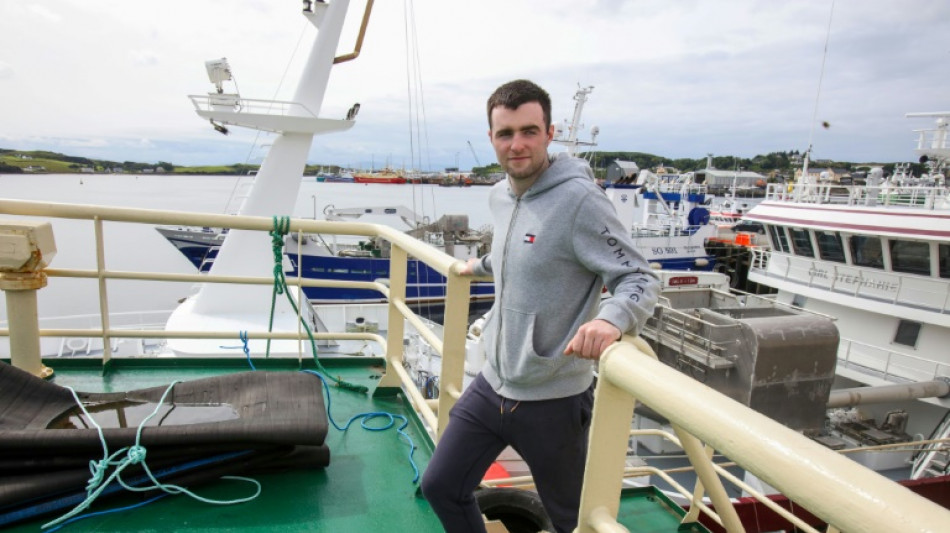
-
 YouTube star MrBeast buys youth-focused banking app
YouTube star MrBeast buys youth-focused banking app
-
French take surprise led over Americans in Olympic ice dancing

-
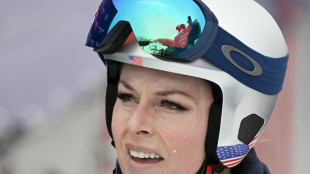 Lindsey Vonn says has 'complex tibia fracture' from Olympics crash
Lindsey Vonn says has 'complex tibia fracture' from Olympics crash
-
US news anchor says 'hour of desperation' in search for missing mother

-
 Malen double lifts Roma level with Juventus
Malen double lifts Roma level with Juventus
-
'Schitt's Creek' star Catherine O'Hara died of blood clot in lung: death certificate

-
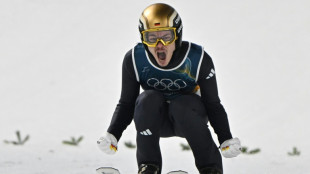 'Best day of my life': Raimund soars to German Olympic ski jump gold
'Best day of my life': Raimund soars to German Olympic ski jump gold
-
US Justice Dept opens unredacted Epstein files to lawmakers

-
 Epstein taints European governments and royalty, US corporate elite
Epstein taints European governments and royalty, US corporate elite
-
Three missing employees of Canadian miner found dead in Mexico

-
 Meta, Google face jury in landmark US addiction trial
Meta, Google face jury in landmark US addiction trial
-
Winter Olympics organisers investigate reports of damaged medals

-
 Venezuela opposition figure freed, then rearrested after calling for elections
Venezuela opposition figure freed, then rearrested after calling for elections
-
Japan's Murase clinches Olympic big air gold as Gasser is toppled
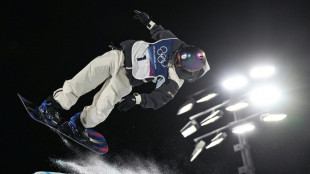
-
 US athletes using Winter Olympics to express Trump criticism
US athletes using Winter Olympics to express Trump criticism
-
Japan's Murase clinches Olympic big air gold
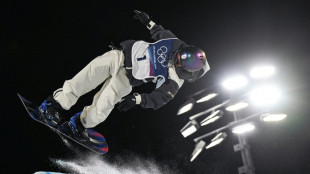
-
 Pakistan to play India at T20 World Cup after boycott called off
Pakistan to play India at T20 World Cup after boycott called off
-
Emergency measures hobble Cuba as fuel supplies dwindle under US pressure
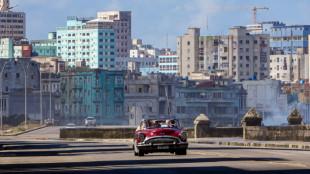
-
 UK king voices 'concern' as police probe ex-prince Andrew over Epstein
UK king voices 'concern' as police probe ex-prince Andrew over Epstein
-
Spanish NGO says govt flouting own Franco memory law
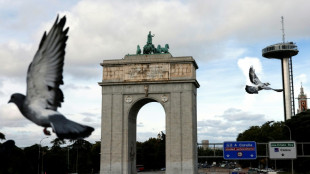
-
 What next for Vonn after painful end to Olympic dream?
What next for Vonn after painful end to Olympic dream?
-
Main trial begins in landmark US addiction case against Meta, YouTube

-
 South Africa open T20 World Cup campaign with Canada thrashing
South Africa open T20 World Cup campaign with Canada thrashing
-
Epstein accomplice Maxwell seeks Trump clemency before testimony

-
 Discord adopts facial recognition in child safety crackdown
Discord adopts facial recognition in child safety crackdown
-
Some striking NY nurses reach deal with employers

-
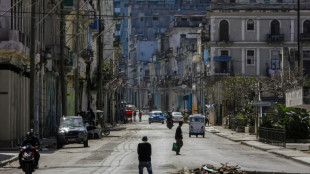 Emergency measures kick in as Cuban fuel supplies dwindle under US pressure
Emergency measures kick in as Cuban fuel supplies dwindle under US pressure
-
EU chief backs Made-in-Europe push for 'strategic' sectors
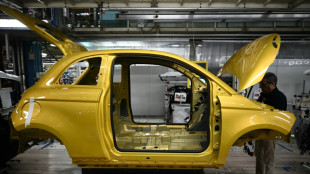
-
 Machado ally 'kidnapped' after calling for Venezuela elections
Machado ally 'kidnapped' after calling for Venezuela elections
-
Epstein affair triggers crisis of trust in Norway
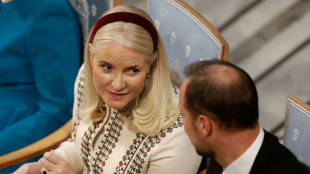
-
 AI chatbots give bad health advice, research finds
AI chatbots give bad health advice, research finds
-
Iran steps up arrests while remaining positive on US talks

-
 Frank issues rallying cry for 'desperate' Tottenham
Frank issues rallying cry for 'desperate' Tottenham
-
South Africa pile up 213-4 against Canada in T20 World Cup

-
 Brazil seeks to restore block of Rumble video app
Brazil seeks to restore block of Rumble video app
-
Gu's hopes of Olympic triple gold dashed, Vonn still in hospital

-
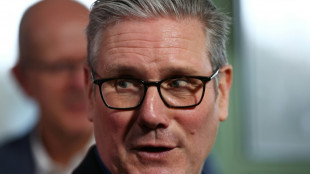 Pressure mounts on UK's Starmer as Scottish Labour leader urges him to quit
Pressure mounts on UK's Starmer as Scottish Labour leader urges him to quit
-
Macron backs ripping up vines as French wine sales dive
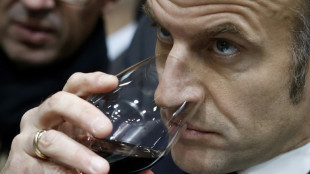
-
 Olympic freeski star Eileen Gu 'carrying weight of two countries'
Olympic freeski star Eileen Gu 'carrying weight of two countries'
-
Bank of France governor Francois Villeroy de Galhau to step down in June
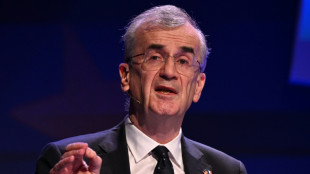
-
 Tokyo stocks strike record high after Japanese premier wins vote
Tokyo stocks strike record high after Japanese premier wins vote
-
'I need to improve', says Haaland after barren spell

-
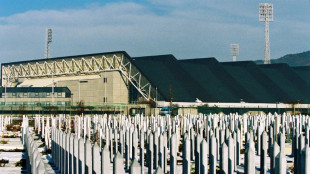 Italian suspect questioned over Sarajevo 'weekend snipers' killings: reports
Italian suspect questioned over Sarajevo 'weekend snipers' killings: reports
-
Von Allmen at the double as Nef seals Olympic team combined gold

-
 Newlyweds, but rivals, as Olympic duo pursue skeleton dreams
Newlyweds, but rivals, as Olympic duo pursue skeleton dreams
-
Carrick sees 'a lot more to do' to earn Man Utd job
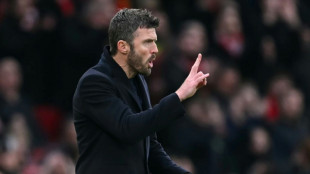
-
 Olympic star Chloe Kim calls for 'compassion' after Trump attack on US teammate
Olympic star Chloe Kim calls for 'compassion' after Trump attack on US teammate
-
'All the pressure' on Pakistan as USA out to inflict another T20 shock

-
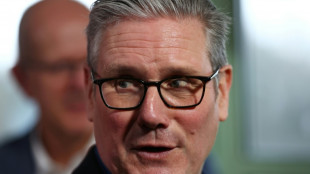 Starmer vows to remain as UK PM amid Epstein fallout
Starmer vows to remain as UK PM amid Epstein fallout
-
Howe would 'step aside' if right for Newcastle


Ireland's fishermen fear species migration as sea temperatures soar
When he finished school Daragh McGuinness knew he wanted to join a fishing crew but now, at 23, he fears climate change may kill off the industry that has sustained his family for generations.
"It's a massive problem," he told AFP in the pilothouse of the Atlantic Challenge trawler, where he works as a deckhand, docked in the port of Killybegs in northwest Ireland.
"It could really finish the fishing, in Ireland anyway at least."
Soaring temperatures in the North Atlantic Ocean over the summer months have raised fears that fish could be pushed to colder waters, heaping pressure on the already struggling industry.
At the end of July, the US National Oceanic and Atmospheric Administration (NOAA) announced that average surface temperatures in the North Atlantic had reached a new record high of 24.9 degrees Celsius (76.8 degrees Fahrenheit).
The Atlantic Challenge, like many vessels sailing out of Killybegs, catches blue whiting and mackerel, which are highly prized on international markets, returning to port one or two days after a catch so produce is fresh.
"It would just concern you that you would be pushed further, too far north and then it wouldn't be viable to come back to Killybegs," McGuinness explained.
Sean O'Donoghue, chief executive of the Killybegs Fishermen's Organisation, said climate change was having a "dramatic effect" on white fish stocks such as cod which prefer colder waters.
- 'Extreme' -
He feared it was "only a matter of time" before so-called pelagic fish such as mackerel, blue whiting and herring move north permanently.
"If we continue with the warming of the waters, it is inevitable, the pelagic species will move totally out of the waters. And we could end up that we have very little fish," he said.
Among trends emerging, he added, were more mackerel being caught by the Icelandic fleet, while his members were catching more species like anchovies and sardines, which are typically found in warmer southern waters, prompting "overall concern".
The temperature record set in July was particularly worrying as it came weeks before the North Atlantic typically reaches peak temperatures in September.
In June, the NOAA recorded what it characterised as a Category 4 or "extreme" marine heatwave off the coasts of Ireland and the United Kingdom.
Glenn Nolan, who heads oceanographic and climate services at Ireland's Marine Institute, said the month saw "significant" temperatures, 4-5 degrees in excess of what would be normal off the country's coast in the summer months.
"When you're seeing a temperature at 24.5 or 21, as we saw in some of the coastal bays around the county of Galway... it's way above what you would ordinarily expect," he said.
Nolan said he expected a specific study attributing the spike in temperatures in June and July to climate change in due course.
- Double whammy -
The UN's Intergovernmental Panel on Climate Change (IPCC), which assesses the science related to climate change, has attributed the intensity of marine heatwaves to global warming for decades, he noted.
"The IPCC have already looked at marine heatwaves in general and they have high confidence that they can attribute them to manmade climate change," the Galway-based expert said.
Nolan said the extreme temperatures could create the conditions for changes to fish migration, and pointed to algal blooms in warm waters causing "problems typically for shellfish and finfish".
For Irish fishing, the situation is a double whammy, as the industry has been hit by lost EU fishing quotas after Brexit, the UK's departure from the bloc at the end of 2020.
EU member Ireland saw a 15-percent cut to fishing quotas by 2025 as part of the last-minute trade deal between London and Brussels.
"Unfortunately the deal that was done disproportionally hit Ireland," said O'Donoghue.
"The net effect of it is that Ireland is paying 40 percent of the transfer of fish to the UK (from the EU)."
He now wants to see changes to EU fisheries policy to reflect the impact of the Brexit cuts on Ireland's fleet and to mitigate the effects of climate change on his members' catch.
"We're not happy with the way things are on the Common Fisheries Policy at the moment. They need to be changed and Brexit and climate change have to be taken on board," O'Donoghue said.
G.Stevens--AMWN



